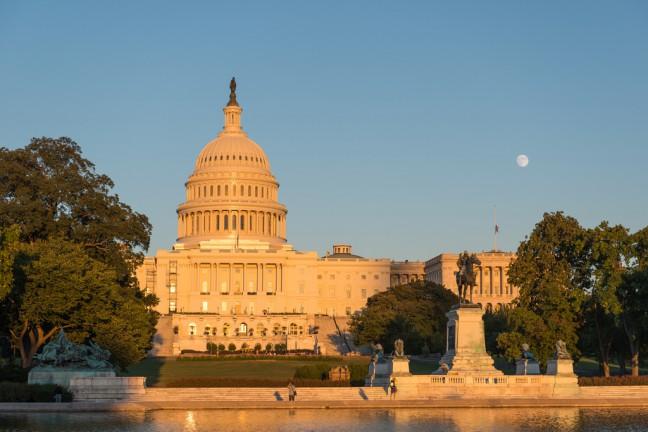Tuesday morning marked the beginning of the first government shutdown in 17 years, but unless the shutdown continues for a long time, the effects on the day-to-day life of University of Wisconsin students will not be extensive, experts said.
UW political science professor Kenneth Mayer said students should not feel dramatic or direct effects from the shutdown, unless the shutdown continues for a long time. Financial aid, ROTC programs and passport and visa processing are among the services affected by the shutdown with the greatest potential to impact students.
Mayer said the tricky part will be anticipating how long the shutdown will last. In the past, many government shutdowns have lasted a couple of days, while others have continued for weeks. The 1996 government shutdown, in particular, lasted 21 days.
Susan Fischer, UW financial aid director, said the office will be open for students who have not finished applying for student loans.
Ninety percent of UW students have already applied for and received their loans, but additional funds will allow the office to remain open for another month and a half, Fischer said.
ROTC programs will likely also not be affected, Mike Johnson, U.S. Army Cadet Command spokesperson, said.
“The only effects there will be is if there are federal employees,” Johnson said. “They will be subject to the same furloughs as all the rest of us. Otherwise, the military instructors come in and instruct. The cadets will continue to go to class.”
However, Johnson added some training could end if a lack of funding occurs.
Josie Lange, a UW freshman in Army ROTC, said class and training are continuing for her and other ROTC members, and she has not heard otherwise.
The U.S. Senate signed a last minute resolution Monday night to allow the military to be paid during the event of a government shutdown.
The U.S. Department of State will also keep operations as normal as possible because the application processes for visas and passports are largely covered by application fees, according to the department website.
Mayer said if students intended to apply for a passport or visa for a study abroad trip, the process to obtain those documents will be slower.
“If you were intending to take a foreign trip, you are out of luck,” Mayer said.
During the last shutdown, 20,000 to 30,000 visa applications went unprocessed everyday, according to the Department of State.
The federal health care reform law’s health insurance exchanges also opened Tuesday as scheduled and will likely see more technical issues without federal employees to fix system glitches, Mayer said.
“It’s a complicated process,” Mayer said of the new insurance exchanges. “It could be that if the system hits the inevitable glitches, there will not be the people around to troubleshoot.”
Mayer said it is possible one party will give way to the other before the public sees the shutdown’s effects.
Most indicators suggest the public is likely to blame congressional Republicans for the shutdown, rather than President Barack Obama, Mayer added.
Austin Helmke, College Democrats of UW chair, said the shutdown shows where the priorities of Republicans in the U.S. House of Representatives lie.
“It’s a clear statement House Republicans think it’s more important to prevent people from getting affordable health care than to fund the government,” Helmke said.
Charlie Hoffman, UW College Republicans chair, said his organization places blame on Obama, rather than House Republicans for the shutdown.
“[Obama] refused to negotiate with Congressional Republicans while they worked to formulate a continuing resolution, yet had no problem picking up the phone to talk to the Iranian president,” Hoffman said in an email to The Badger Herald.


